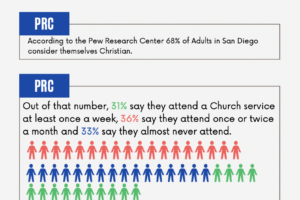Con:
Does Aiding the Homeless Enable Homelessness?
“Anything helps.”
I’m sure that we have all seen the signs held up by the unfortunate individuals in our community. Those who have lost their jobs, fallen into addiction or have returned home from war to find that they have no place to go.
Homelessness is undoubtedly present in our southern California community which immediately calls many to help–however, we need to keep in mind that the problem of homelessness is an extremely complex issue. As much as we desire to help by handing out food, blankets and other supplies, we must consider the hard question of whether our best intentions of aiding the homeless community ultimately hurts them in the end.
First off, I know what you are thinking: “Homeless people are human beings and it is our moral obligation to help not only as Christians, but as human beings.” Primarily, I want to say that I completely agree with this statement. There is nothing that breaks my heart more than watching another human being struggle to get by while I get to scan into a cafeteria three times a day with a roof over my head and a warm bed to come home to.
However, putting a band-aid over this issue by giving the homeless community handouts will never alleviate the overall issue of homelessness and has led to an increasing amount of social stagnation over the past year. According to the U.S. Department of Housing and Urban Development, incidences of chronic homelessness have increased by a substantial 12% since 2016 and are projected to rise as more accommodations are made to make the homeless community more comfortable.
Many of the homeless individuals interviewed in the Ocean Beach and Normal Heights area reported that they have no intentions of getting off the streets. They were perfectly content with the life that they had found despite the fact that they were homeless. They knew where all the free food was, which churches handed out blankets and when, and how to stay sheltered in the city without running into cops.
When asked why they would want to resort to this kind of life, most replied that they didn’t know how to get out even if they wanted to. Normal society is not a place that they felt they belonged anymore.
What I’m getting at is that we need to be advocates of rehabilitation instead of accommodation. While handing out free meals and a fleeting smile can make you feel like a social hero, it doesn’t change the fact that many of the people that you serve on the streets will never be able to go back to their homes or families.
Many of these people lack the social skills to integrate back into a working class environment and do not have the resources to get the help they really need. What the homeless community needs is more than a bagged dinner and an assurance that everything will turn out in the end. They need a generation of informed individuals to change the way that we approach this issue in the future.
Noah Skorheim is a junior majoring in biochemistry.
Pro:
Feeding the Homeless is Feeding Family
Attending PLNU is an incredible blessing which requires time, dedication and most of all, money. In total, the 2017-2018 year costs $46,150 when accounting for tuition and room and board. There are always exceptions, but for the most part, PLNU students come from backgrounds that are relatively financially stable.
On campus, there are many different organizations that reach out to the homeless, specifically to feed them. As followers of Jesus, but also as humans, it is our duty to help others that are in need. If a friend needs a meal, it is our obligation to feed them.
Jesus would have undoubtedly fed the homeless. It was in his very nature to spend his time with the poor, hopeless, lost and abandoned. We may be broke college students, but we can also skip a California Burrito to buy a meal for a homeless person. With our homeless ministries, you don’t even have to pay for another person’s food–you simply give your time and hand out food that someone else has already paid for.
But there is a dilemma when it comes to helping the homeless–If I were to give a homeless person five dollars for food, how do I know they aren’t going to spend it on alcohol or drugs? You can’t know, but you can try to do what Jesus would do.
If I were to feed a homeless person, how do I know they won’t just take advantage of my help? After all, if you’re getting free meals every day, why would you ever go back to working? That’s an excellent point–some people are homeless for a period of time, but some are homeless all their lives.
I had two cousins who were homeless and living on the streets–a one-year-old and a three-year-old. If there were no one feeding them, they would most likely be dead. We took them in to our own home and fed them ourselves, and they are wonderful young boys now.
I have also had uncles and relatives living on the streets who sincerely could not support themselves and needed help. I have seen the effects it takes on your body and your mind when you don’t know where your next meal is coming from, and it is devastating.
Yes, the next time you feed the homeless, you could be enabling someone’s homelessness. But you could also be the savior of a child, a veteran or a friend. Every human has a family. When you feed the homeless, you are feeding someone’s son, daughter, mother, father, brother or sister.
In 2015, San Diego’s homeless population was 8,742–the fourth largest in the U.S., while San Diego is only the eighth-largest city in the country in terms of population. We can do something to help our friends and family on the streets.
Imagine if your friend or family member was living on the streets. Would you want them to be fed? As Christians and as compassionate humans, we should feel it is our duty to give to those in need, and feeding the homeless is a great way to love another human.
Shane Hoyle is a freshman majoring in writing.








Add Comment